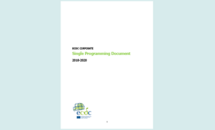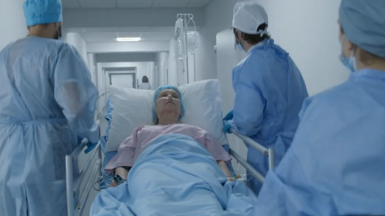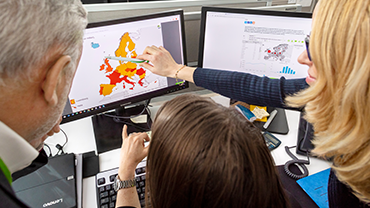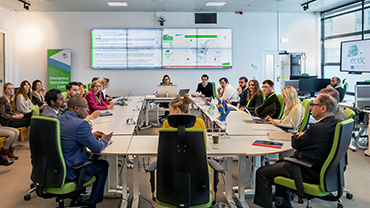ECDC Annual Work Programme 2016
In accordance with ECDC’s Founding Regulation, the Centre’s work is guided by an Annual Programme of work based on a revisable Multi-annual Programme. The second Strategic Multi-annual Programme covers the period 2014-2020. The present document presents the proposed Work Programme of ECDC for 2016, including the resources, both in terms of budget and staff.
Executive Summary
The year 2016 marks the second decade of ECDC’s existence. Remarkable changes have occurred on the one hand and many things still require the same dedicated conventional approaches. The Centre stays alert as the threats of communicable diseases will not stop to challenge the health and wellbeing of European citizens. So what is new?
ECDC’s involvement in the field in West Africa, more specifically in Guinea, has been an unprecedented change in response to threats by the Centre. It is impossible to predict how much efforts will be needed in 2016, but the world cannot give up in supporting the fight to reach Case Zero. For sure I hope that our joint efforts will rapidly lead to a stable situation. However, new and unknown threats may occur, but I feel that the Centre, the European Commission and the Member States are now much better prepared than before. That does not imply any reason for complacency as the goals set forth in Decision 1082/EC/2013 on cross border health threats require significant efforts.
Among those efforts are the horizontal actions to mitigate the health threats related to migrants and vulnerable populations as well as the support to the priorities set by Commissioner Andriukaitis. These priorities include strengthening of the EU in fighting TB, HIV, hepatitis B and C and vaccine preventable diseases. Moreover, the threat of antimicrobial resistance justifies even stronger attention. As the situation in the EU is quite diverse ECDC will support the Commission and the Member States by supplying assessments, data for analysis, data for action and data for comparison.
In that sense the results of our ongoing Surveillance System Reengineering project will lead to an improvement in the speed, flexibility and responsiveness of ECDC. And the capacity to detect and characterise microbiological threats will face challenges of adapting to new technologies, sometimes with limited resources, in which ECDC searches to optimise its coordination activities at the technical level, together with the Commission, CHAFEA, and so many other partners and stakeholders.
ECDC will continue to optimise its use of resources, especially since its human resources will continue to decrease in the next years. But I feel comfortable that our dedicated staff will find creative ways to reduce the burden of diseases. I am looking forward to see how the recommendations of the second external evaluation will help us to do so in remaining a trustworthy, reliable partner providing state of the art technical support and information.
Download








